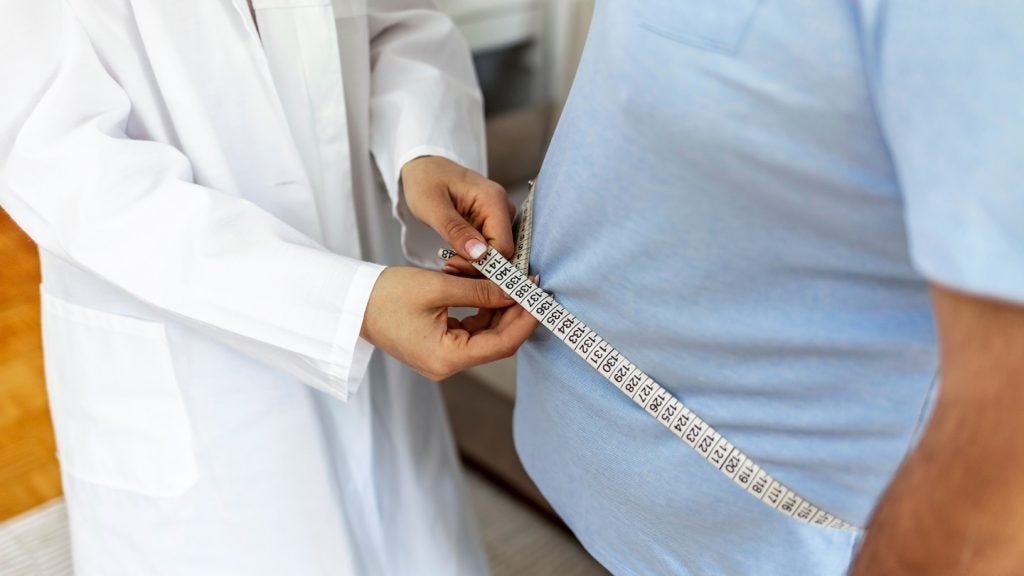Eli Lilly and Company has reported that its Phase II clinical trial of retatrutide for the treatment of obesity has met its primary endpoint and demonstrated a mean weight reduction of up to 17.5% at 24 weeks.
The placebo-controlled, randomised, double-blind study in the US is designed to assess the safety, tolerability, and efficacy of the investigational molecule retatrutide in obese populations with weight-related conditions except type 2 diabetes.
A total of 338 participants were randomised in a 2:1:1:1:1:2:2 ratio to receive subcutaneous doses of retatrutide comprising 1mg, 4mg (with an initial dose of 2mg), and 4mg (with an initial dose of 4mg) once weekly for 48 weeks.
Dosages of 8mg (with an initial dose of 2mg), 8mg (with an initial dose of 4mg), 12mg (with an initial dose of 2mg) or placebo were also given to the participants.
The therapy demonstrated a mean weight reduction of up to 24.2% at the end of the 48-week treatment duration, in a secondary endpoint.
The retatrutide group also showed improvements in LDL-cholesterol, triglycerides, fasting glucose and insulin levels, total cholesterol, HbA1c, as well as systolic and diastolic blood pressure, measured as exploratory endpoints.
Lilly chief scientific and medical officer, and Lilly Research Laboratories president Dan Skovronsky said: “We believe that combining glucagon receptor agonism with GIP and GLP-1 receptor agonism may be one of the reasons retatrutide showed this level of weight reduction.
“These phase II data have given us the confidence to further explore the potential of retatrutide in Phase III trials that will look beyond weight reduction and focus on treating obesity and its complications comprehensively.”
Lilly is also assessing the safety and efficacy of retatrutide for knee osteoarthritis, chronic weight management, and obstructive sleep apnoea in obese people, as part of its TRIUMPH Phase III development programme.









